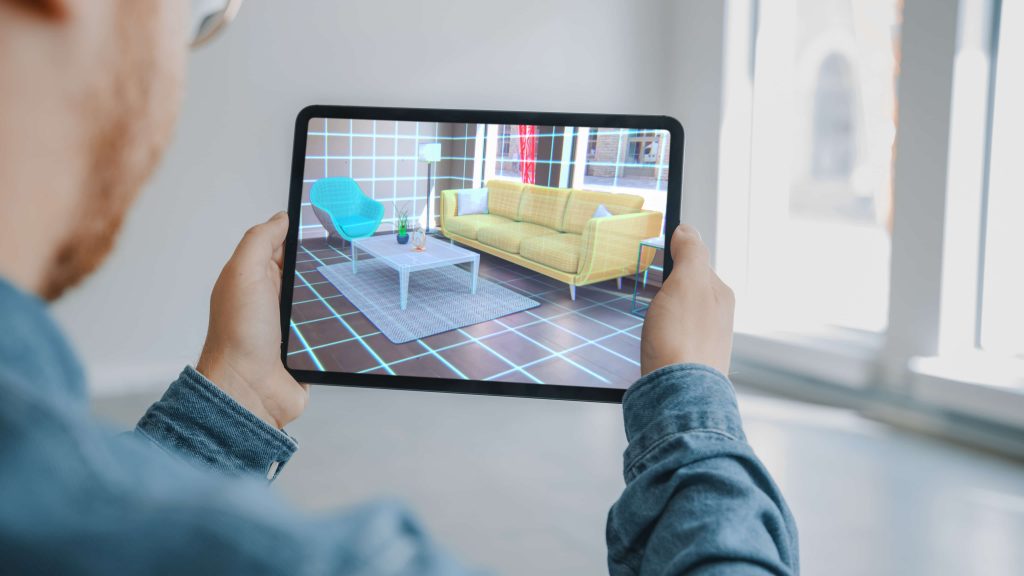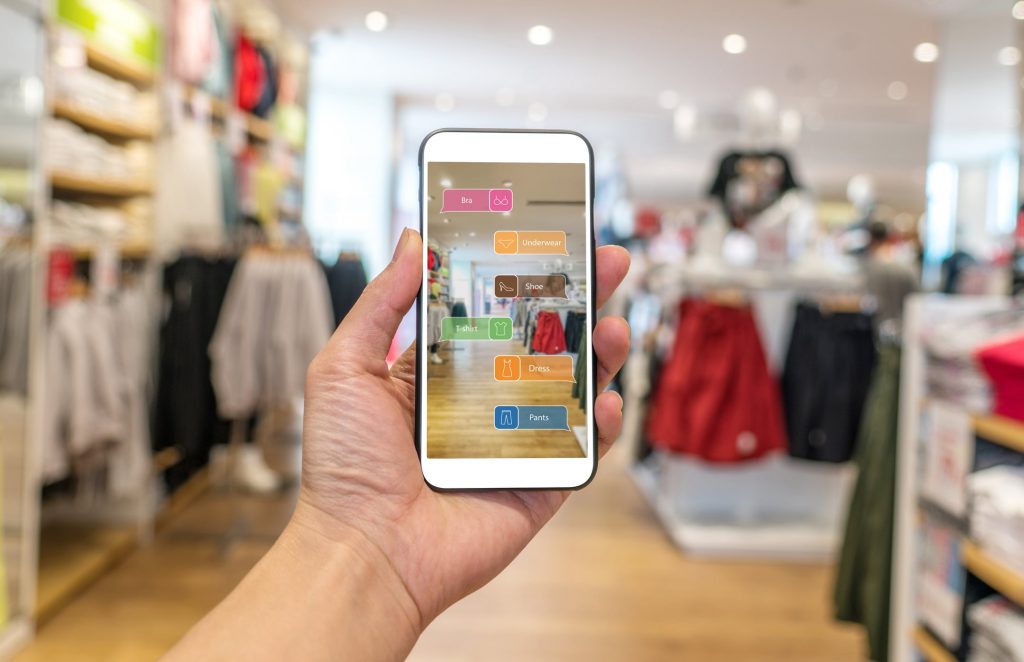Augmented Reality (AR) is becoming more commonplace and accessible to everyone. Enhancements in the mobile space have made it easier for businesses of all sizes to use AR technology. The decision becomes whether it’s better to deliver this experience through a convenient website or with a more powerful app. We will explore the pros and cons of each option in this article.
First, let’s define what augmented reality is.
We have an article that dives deeper, but to put it simply; AR is the layering of digital elements over the real world. AR on a mobile device can use the front or rear-facing camera. Software running on the phone then uses objects in the real world (targets) to anchor a virtual experience. AR can place virtual objects into real space. In the IKEA and Amazon apps, you can view objects (like furniture) in AR and place them in your home. AR can turn a real building into a spaceship or a poster into an animated movie trailer. You can even try on a pair of virtual sunglasses to see how they look before purchasing.

The Augmented Reality App Challenge
One of the big issues with AR on mobile is the push to make everything an app. With so much content constantly vying for consumers’ attention, companies often assume that a branded app will help differentiate them from the pack. However, many people do not want to install an app that won’t be used on a regular basis. It is impractical to assume consumers would install an app on their devices for a one-time experience. Luckily there are other options for launching an AR experience.
Augmented Reality Using Social Platforms
One option is using Facebook or Instagram. Both Facebook and Instagram enable developers to create AR experiences using a tool called Spark AR. These social platforms can serve as the application used to launch the AR experience.
Since so many people have Facebook or Instagram already installed on their phones, you gain access to a large audience without forcing people to install an app they may not use frequently. Spark AR also makes it easy for developers by providing face-tracking in the development kit. AR experiences like users creating videos of themselves wearing a Football helmet from their favorite team are easy to create with the kit.
Web-Based Augmented Reality Apps
Web AR is a new development that enables developers to use the camera software and browser installed on most phones to launch an AR experience. Most phone cameras recognize a QR code. Adding a QR code to an object can direct the phone’s web browser to open a web app containing the AR experience. No app installation needed! All the user needs to do is scan the QR code with their phone’s camera application to start an AR experience. For example, conference attendees could scan a QR code and see arrows on the floor directing them to registration or a particular breakout session. This same technology can be used in retail to show details about a product.
Web AR does have some limitations. It can’t do everything or provide experiences as complex as those provided by a native mobile app, but that gap narrows every day.
Native Augmented Reality Apps
A native application is the most powerful option for immersive AR experiences. When developing an AR app, you can use objects in the real world to launch an experience instead of requiring a QR code. Even 3D objects in the real world can anchor an AR experience. Native AR experiences can trigger based on location in addition to using visual markers. Pokémon Go, released back in 2016, is probably the most successful AR app to date and used location to launch its AR experiences.

Which Route is the Right One?
That depends!
If you simply want an AR experience for a one-time marketing push (for example a movie trailer or new product announcement), a social or web-based experience may fit best. They are the most easily accessible but do have some limitations in their functionality.
If you want a robust AR platform that launches based on a location or real-life object, a native app may be a better fit. Living Labels, an AR app that brings to life wine labels, is a perfect example use of a native app. The app has several different branded experiences, from the original 19 Crimes to the Walking Dead and many more. The experience launches by recognizing a real-life object (aka the wine label) not a QR code.
There are many options when developing augmented reality, so many that it can feel overwhelming at times. The great thing is you don’t need to figure it out alone. Once you find a development partner you trust, they will be able to guide you through the pros and cons of each method and offer suggestions for your specific project.
Recommended for You
Check out related insights from the team
Get empowered, subscribe today
Receive industry insights, tips, and advice from Saritasa.